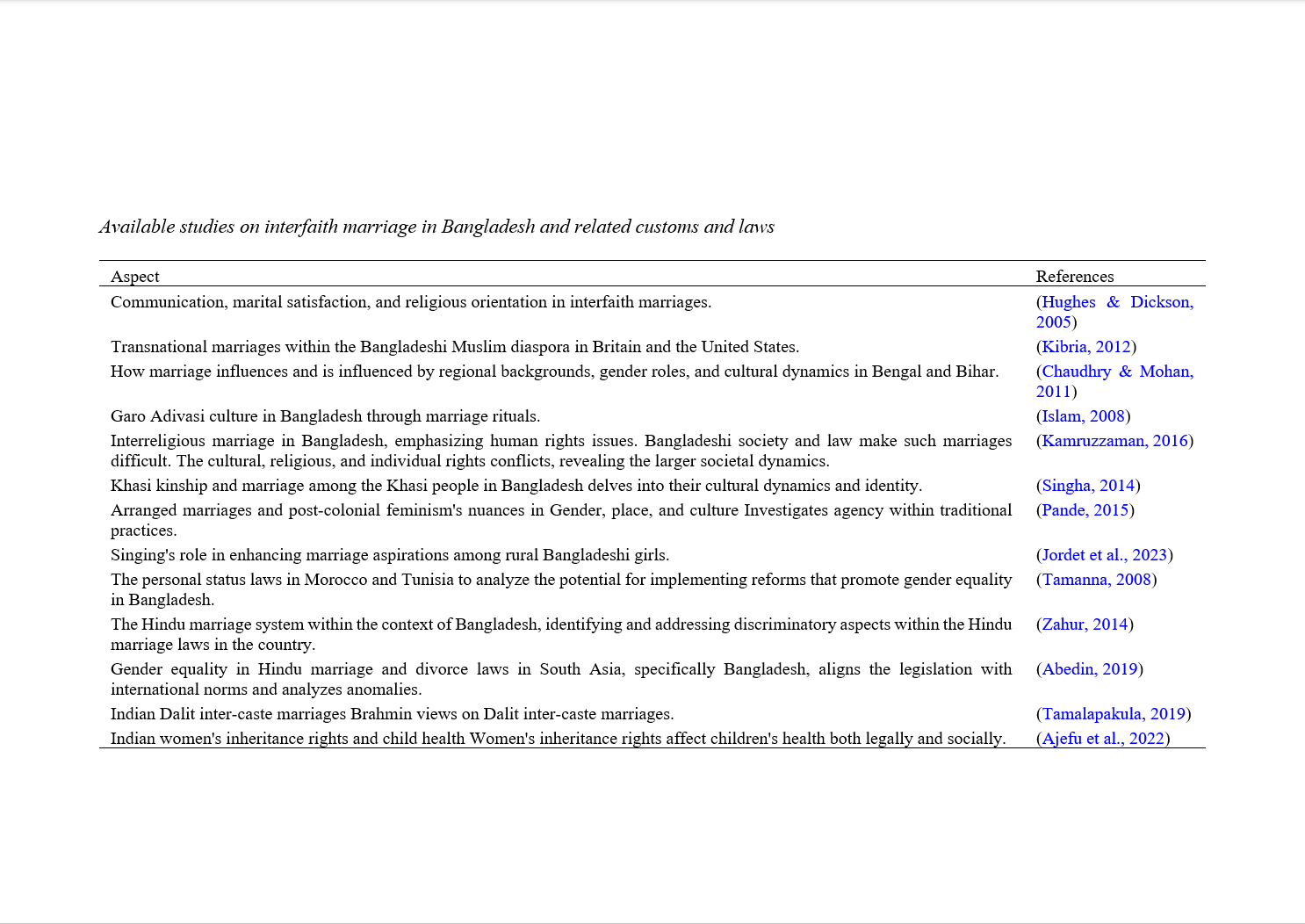Interfaith Marriage in Bangladesh: A Comparative Analysis of Past and Present Trends and Sociocultural Aspects
Keywords:
Interfaith, Marriage, Bangladesh, Marriage Act 1872; Socio-Cultural AspectsAbstract
Objective: This study examines the dynamics of interfaith marriage in Bangladesh, many customs and rituals, different religious society views, and marriage reviews, offering a comparative analysis of past and present trends and exploring the sociocultural aspects surrounding these unions, with specific consideration given to the influence of the Marriage Act of 1872. The objectives of the study aim to investigate the historical evolution of interfaith marriages, analyze the sociocultural factors influencing their occurrence, and assess the impact of the Marriage Act of 1872 on regulating such unions.
Methods and Materials: The research methodology involves a comprehensive review of the literature, an examination of historical data conducted with a qualitative approach.
Findings: The findings suggest a noticeable increase in interfaith marriages, driven by urbanization, globalization, and changing religious perspectives. Despite legal provisions, societal and cultural barriers persist, presenting challenges for interfaith couples.
Conclusion: The study concludes by emphasizing the importance of promoting awareness, understanding, and acceptance of interfaith marriages in Bangladesh and proposing legal reforms and educational initiatives to foster a more inclusive and harmonious society.
Downloads

Downloads
Additional Files
Published
Submitted
Revised
Accepted
Issue
Section
License
Copyright (c) 2024 Murshida Khatun (Author); Md Amirul Islam (Corresponding Author); Mst. Baly Khatun (Author)

This work is licensed under a Creative Commons Attribution-NonCommercial 4.0 International License.






